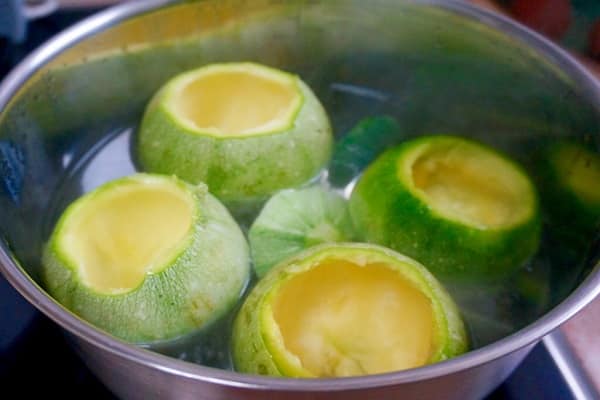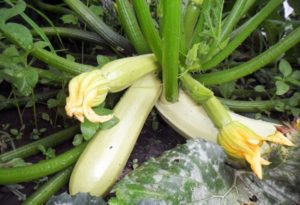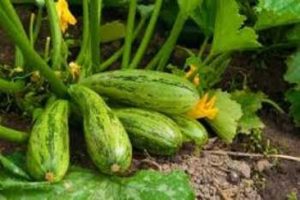Why zucchini tastes bitter in the garden and what to do
Sometimes, after harvesting, some summer residents notice that the zucchini has an unpleasant bitter taste. There are several reasons that can answer the question of why zucchini are bitter, but they are not always obvious. To understand the factors that affect the taste of a vegetable, you need to familiarize yourself with the possible mistakes that were made when growing it. Also, gardeners will not hurt to familiarize themselves with the methods to save the crop in the event of such an unforeseen situation.
What makes zucchini bitter?
The main reason why zucchini tastes bitter is that cucurbitacins accumulate in them. These substances are accumulated in all crops belonging to the pumpkin family... Basically, a plant culture begins to actively accumulate such substances when extreme conditions are formed, for example: with a lack or an excessive amount of water and nutrients. Also, a change in the quality of zucchini, the appearance of a bitter taste may be due to damage to the plant by various pathologies, growth in low light conditions.
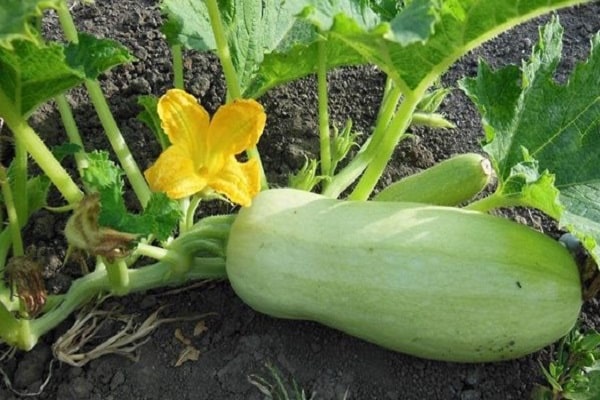
Cucurbitacins are not toxic substances. Interestingly, they are even useful. These substances have a directed effect against tumors and parasites. Due to these properties, cucurbitacins are used in traditional Indian and Chinese medicine.
Despite this, if zucchini is bitter, many summer residents are in no hurry to eat and serve them, in this case, you need to know in advance about the factors affecting the change in the taste of the vegetable in order to avoid their appearance.
Neighborhood of cultures
In most cases, bitter zucchini in the garden grows when the wrong neighboring plant crops are located near them. Bitterness is manifested as a result of over-pollination of related plants. So, zucchini tastes bitter if it was grown near an ornamental pumpkin. Despite its beautiful attractive appearance, it bears fruit with inedible pumpkins, which affect the zucchini flavor. Also, the crop can be bitter if it was grown near the following plants:
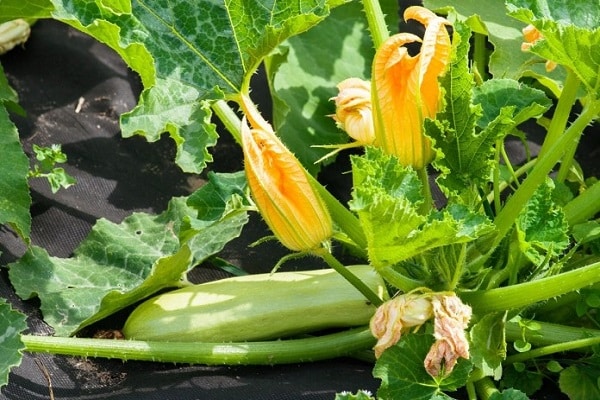
- parsley;
- radish;
- tomatoes;
- cucumbers;
- potatoes;
- radish;
- pumpkins.
To avoid changing the taste of a vegetable, it should be planted in beds located near peas, onions, spinach, and bush beans.
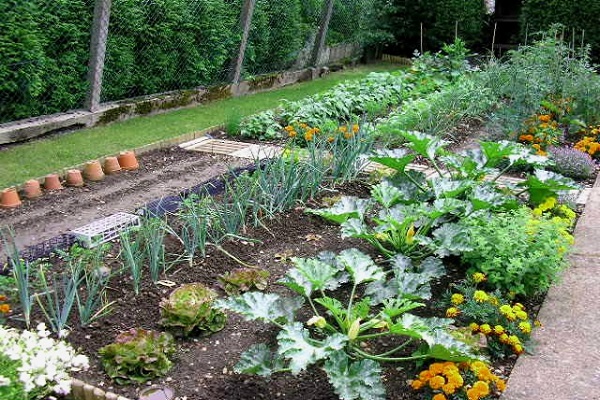
Watering mode
In addition to the wrong neighbors, other growing conditions can affect the taste of zucchini. Among them, the provision of improper watering is distinguished. If the summer resident moistens the soil without adhering to a certain regime, nitrogenous compounds begin to accumulate in the leaves and fruits of the vegetable, giving them a bitter taste.Also, bitter zucchini squash can grow in case of prolonged rain, which began after a drought.
It is possible to preserve the taste of the vegetable, as well as its beneficial properties, by properly ensuring the watering of the plant culture. To do this, you must follow the rules:

- watering should be done regularly;
- for irrigation, it is necessary to use water that has settled in the sun, while it should not be contaminated;
- watering young zucchiniso that they do not taste bitter, daily until the leaves close, and after they cover the ground, the amount of moisture introduced is reduced.
If the weather is hot, the crop should be watered after 2-3 days. If it is cloudy outside, you will need one watering every 5-6 days. The liquid must be poured under the root, while irrigating the foliage is not recommended. If the greens begin to wither, they need to be watered with a watering can. You can replace it with a hose by putting on a fine mesh nozzle.
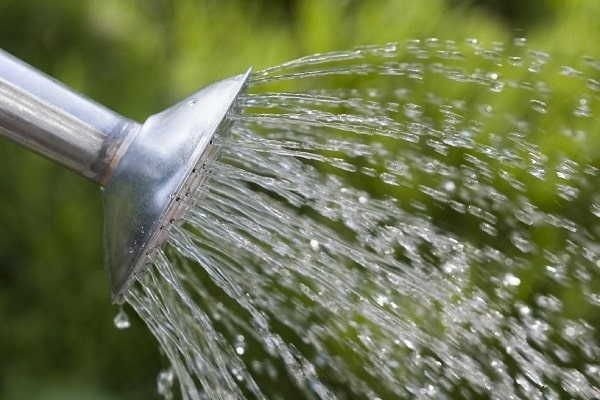
Lighting and rules for feeding zucchini
Another reason why zucchini are bitter is the improper feeding of the plant, as well as the lack of optimal lighting conditions. Zucchini are very sensitive to light, therefore, to grow them, you need to select a place in the country, located on the sunny side. At the same time, there should be no drafts and strong winds in the selected area. Also, fruits can react sharply to a decrease in daylight hours.
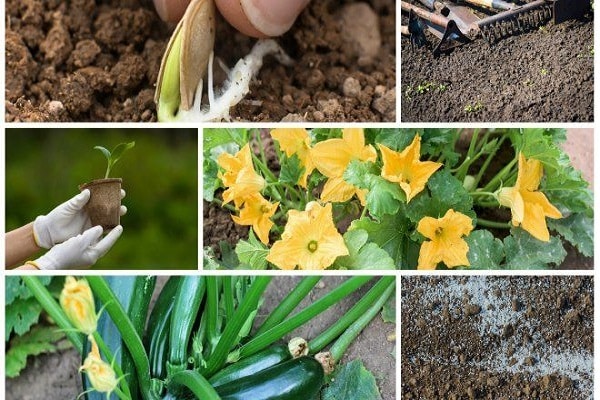
In addition to lighting, zucchini needs to provide proper fertilizing with fertilizers. In this case, fertilizers should be applied throughout the growing season. The plant culture responds best of all to the introduction of organic substances. Providing such feeding of zucchini, they form large fruits and are actively developing.
As a fertilizer, it is advised to use mullein diluted with water, as well as a three-day fermented herbal infusion. When the plant begins to form ovaries, it is recommended to add superphosphate and wood ash to the fertilizer. Care must also be taken during fertilization. This is due to the fact that an excess of phosphorus and potassium can also change the taste of the vegetable.
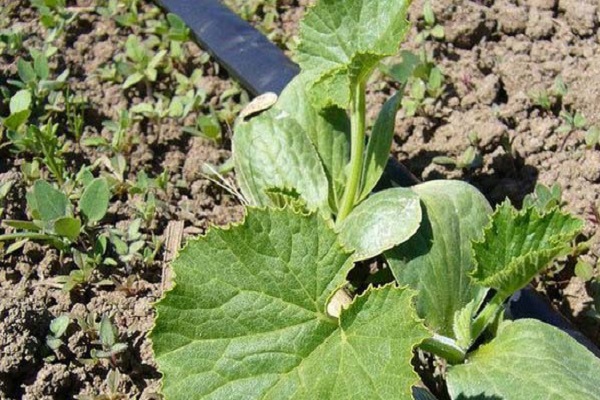
Storage conditions for zucchini
Sometimes the taste of zucchini changes after the harvest. To avoid this, you need to know how to properly store the harvested crop. Storing zucchini of dairy maturity should be carried out at a temperature of 0-2 degrees. In this case, the shelf life of the vegetable is 12-15 days. If you store the crop longer, you need to be prepared for the flesh to wither, the appearance of rot.
Fully ripe fruits can be stored for 4–5 months. They are required to be laid in a cool, ventilated room. The best option is to locate the crop on the veranda or attic. To eliminate the risk of a bitter taste, as well as the spread of rot, it is impossible to store the crop in the cellar.
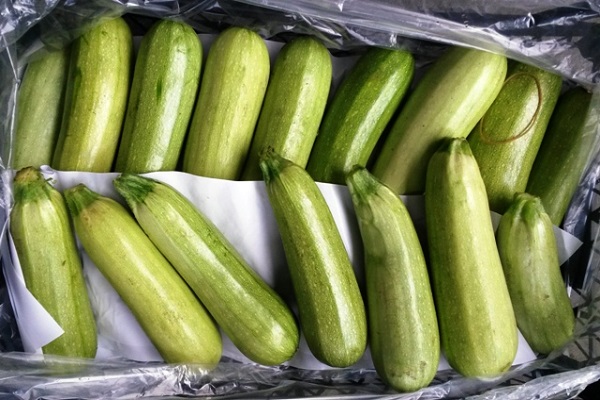
If the summer resident lives in an apartment, you can put the crop on a warm balcony or in a darkened place. Best of all, zucchini retain their taste under the bed, in the closet.
During storage, attention should be paid to the ambient temperature. This is due to the fact that when it rises, seeds germinate earlier inside the fruit, which provokes the appearance of a nasty bitter taste.
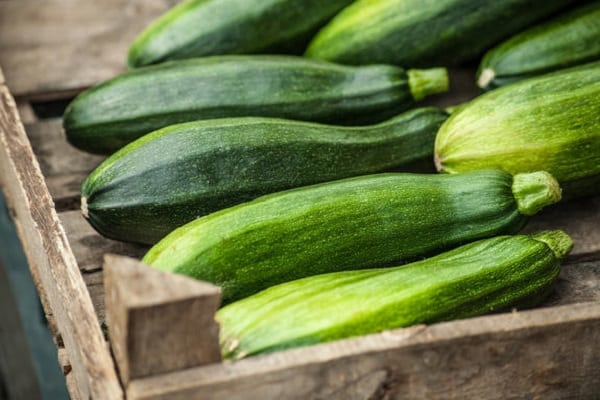
Diseases of squash
Also, diseases and pests affect the taste of zucchini. Therefore, when growing crops, it is necessary to prevent their appearance. Most often, bitterness appears under the influence of fungal infections. Anthracnose is considered one of the most common pathologies.The presence of this disease can be recognized by the appearance of rounded spots with a yellowish brown tint. These spots are located on the leaves.
Gradually, the leaf plate fades, dries up, and becomes covered with holes. The disease spreads in hot weather with frequent rains.
Another pathology that causes the appearance of bitterness is fusarium. The disease can be determined by the presence of yellowing, drying out lower leaves. Another symptom of fusarium is the acquisition of a pinkish tint at the base of the stem.

How to get rid of bitterness?
What to do if bitter zucchini has grown in the garden? There are several proven methods to improve the situation and improve the taste of the vegetable. So, getting rid of bitterness will help:
- soaking zucchini in cold water before canning;
- boiling the vegetable in boiling water for several minutes;
- soaking the sliced vegetable in salted water.
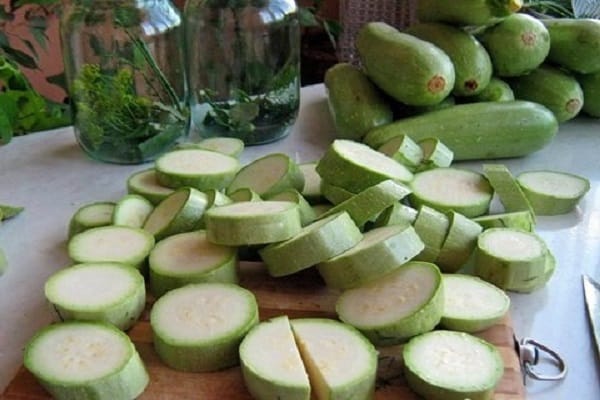
Under the influence of these factors, all bitter substances are destroyed, due to which the taste of zucchini improves. If the hostess wants to cook fried or stewed zucchini, it is best to get rid of the bitterness by soaking the pulp in salt water. The vegetable is cut into several slices and placed in a container with liquid for 3 hours. The slices are then removed and used to prepare the dish.
Many housewives recommend dishes from repeated salting, since the pulp of the vegetable absorbs salt well from the liquid in which it was soaked.
When growing zucchini, you should carefully monitor the growth and development of the culture. This will help to identify the factors why the squash is bitter. Timely elimination of them will allow you to cope with the deterioration of taste even before the problem arises and to preserve a tasty harvest. If the trouble still occurs, the summer resident should not be upset, since there is an opportunity to save the harvest. To do this, you need to use one of the above methods.
